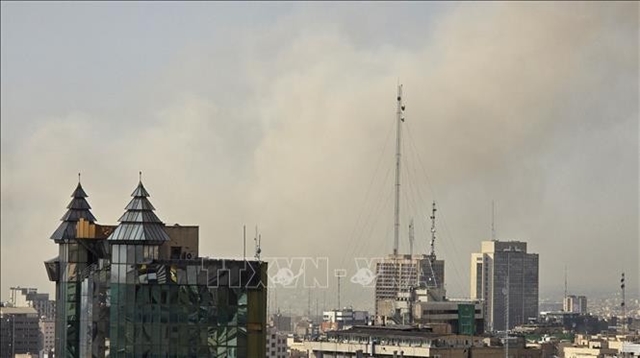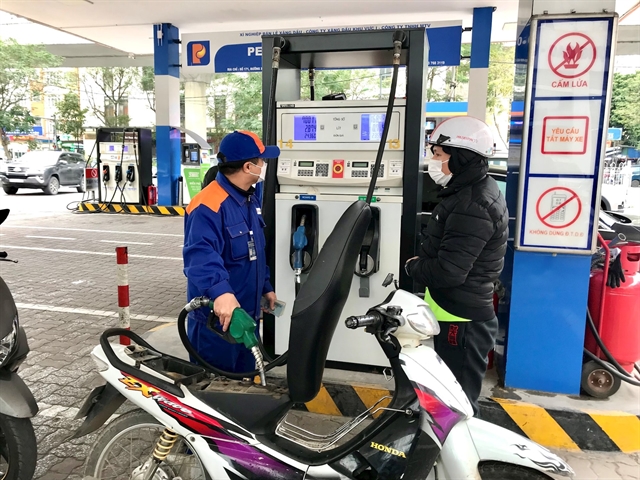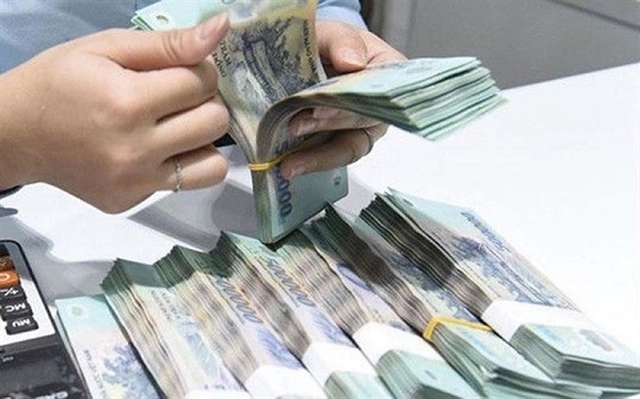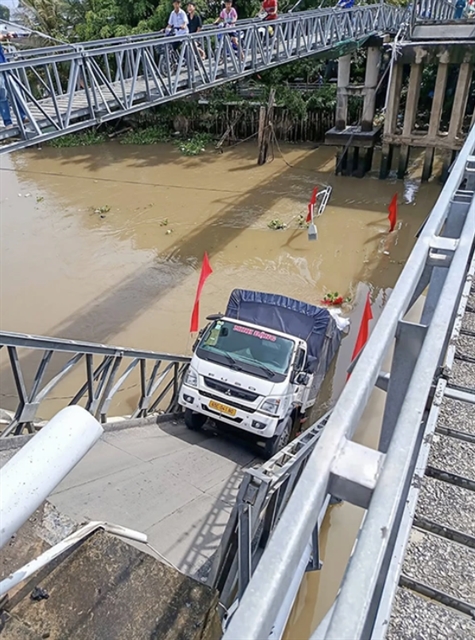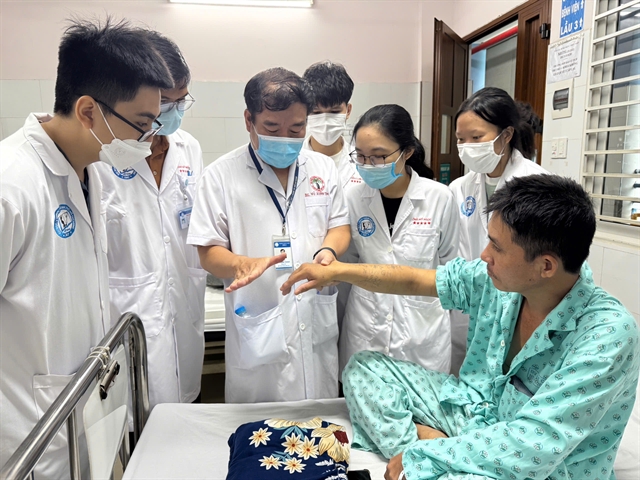 Opinion
Opinion
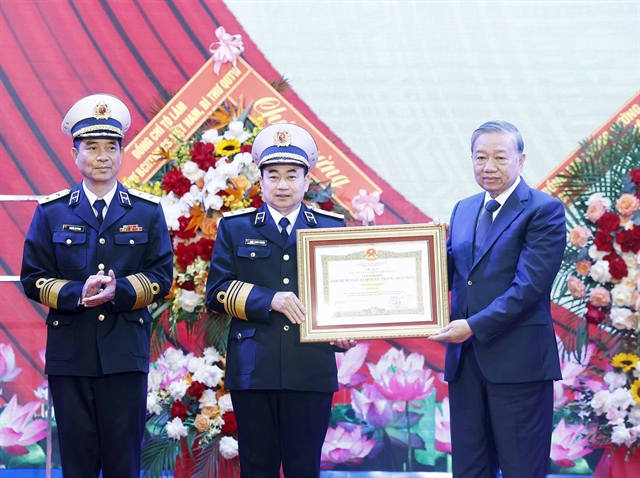
Ambassador of the European Union (EU) to the Association of Southeast Asian Nations (ASEAN) Igor Driesmans spoke to Vietnam News Agency reporter based in Jakarta, Indonesia, appreciating Viêt Nam’s efforts in hosting the 53rd ASEAN Minister Meeting and related meetings amid unprecedented challenges.
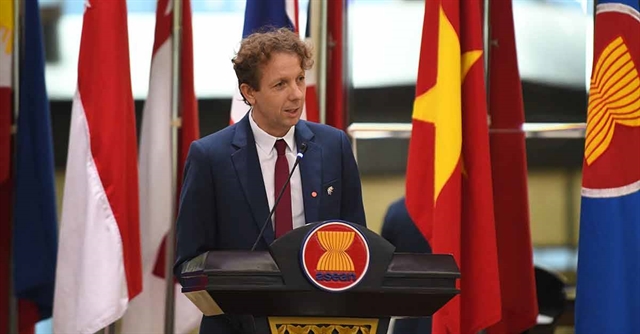
|
| EU Ambassador to ASEAN Igor Driesmans. |
What was the focus of the ASEAN-EU Foreign Ministers’ Meeting and the ASEAN Regional Forum? In your opinion, what are the most important outcomes of this Meeting and Forum?
Let me start by saying that Việt Nam has successfully managed to host a series of important ministerial meetings this year amid unprecedented challenges. While we have turned mostly online for now, we have been able over the past few months to maintain a good momentum in strengthening EU-ASEAN relations and reinforcing their strategic nature.
The 27th ASEAN Regional Forum (ARF) and the ASEAN-EU Post-Ministerial Conference took place at a time when Europe, Southeast Asia, and the entire global community are facing the COVID-19 pandemic. The fact that both meetings were successfully held – albeit virtually – serves as an important reminder about the value that all participants see in a multilateral approach to solving problems and enhanced cooperation at a time of great uncertainty.
This joint effort is reflected in the “ARF Statement on Infectious Disease Outbreaks”, which was endorsed by all participants and calls, among others, for enhanced regional and international solidarity and cooperation in addressing the current pandemic and preventing future outbreaks. The 27th ASEAN Regional Forum addressed important regional and international security issues such as fight against terrorism and transnational crimes, situation in the South China Sea, and the Korean Peninsula. The global pandemic has accelerated existing trends towards digitalisation of our economies and societies, which in turn bring to the fore the need for more cooperation on developing international norms and guidelines for safeguarding cyber-security. This is a new and increasingly important area of work for the ARF.
It was the first time since the start of his mandate that our High Representative for Foreign Affairs and Security Policy, Josep Borrell, participated in the ASEAN-EU Post-Ministerial Conference. In what turned out to be a very fruitful meeting, both sides took stock of the width and depth of EU-ASEAN relations ranging from countering transnational crime, maritime security, human rights, sustainable development and smart cities to trade, education, connectivity, cybersecurity, and narrowing the development gap. More specifically, the meeting addressed a broad range of current issues such as our cooperation to fight against COVID-19, in particular support from the EU for developing a comprehensive recovery framework and enhance collaboration for equitable access to affordable COVID-19 vaccines.
What are the messages, commitments and initiatives raised by the EU at these events, especially related to regional security, the Indo-Pacific vision and the economic recovery after COVID-19 pandemic?
Our key message is that the European Union continues to be a reliable, trustworthy, and predictable partner of the region. In addition to responding to the COVID crisis and providing 800 mil EUR of Team Europe support to ASEAN countries, which far exceeds contributions of the United States and China, we emphasise the importance of looking ahead. First and foremost, the EU stands ready to work with ASEAN partners in ensuring fair and equitable access to affordable COVID-19 vaccines. We were among the first partners to hold a meeting between our Foreign Ministers on COVID-19 and we continue to reinforce our cooperation to tackle this crisis. The EU will continue to support ASEAN’s efforts to achieve a prosperous, safe and united community, as this brings lasting benefits to both our regions.
Secondly, in addition to maintaining our current supply lines, we look forward to accelerating our joint economic recovery by further strengthening our trade and connectivity. Trade facilitation, removal of tariff and non-tariff barriers, and connectivity in all shapes and forms – physical infrastructure, transport, digital, and people-to-people exchanges – will play key roles in our joint post-COVID recovery. The EU is willing and able to deepen our cooperation with ASEAN to ensure that we are able to use the existing opportunities to the fullest possible extent.
At the same time, regional and global challenges must not be ignored. We noted the recent developments in the South China Sea and as a staunch believer in international law and peaceful resolutions of conflicts, encouraged further progress in the negotiations on the Code of Conduct in the South China Sea. We look forward to its early conclusion in line with international law, particularly the 1982 UNCLOS. During the Post-Ministerial Conference, we voiced our strong support to a more enhanced role for ASEAN in addressing the situation in Rakhine State and facilitating the repatriation process of the displaced persons. Equally importantly, we are proud to have cosponsored the ASEAN Regional Forum's Statement on the Treatment of Children Recruited by or Associated with Terrorist Groups.
Looking ahead, green economy, digitalisation in the context of the Fourth Industrial Revolution, and the fight against climate change will feature more and more prominently in the co-operation between the EU and ASEAN. The green agenda in particular remains a top priority for the EU and for our partnership with ASEAN.
What is your assessment of Việt Nam’s role as the Chair of ASEAN 2020 through its performances achieved from the beginning of the year?
Việt Nam just successfully hosted the 53rd ASEAN Foreign Ministers’ Meeting and the 27th ASEAN Regional Forum and in the process overcame some truly unprecedented challenges. The technical and logistical aspects of this undertaking are impressive, taking into account the fact that the ARF membership spans four continents and multiple time zones.
Việt Nam’s focus on strengthening a cohesive and proactive ASEAN cannot be more relevant than it is today, when the pandemic has provoked a global economic shock unlike any other in recent history. Việt Nam’s ASEAN Chairmanship has successfully upheld the spirit of solidarity, cooperation and the sense of responsibility towards the international community since the early days of this crisis.
Under the leadership of Vietnam, ASEAN has shown a real willingness to come together to find regional solutions and to mitigate the effects of this crisis, as illustrated by the Special ASEAN Summit on the Coronavirus Disease in April.
Việt Nam has also been able to reaffirm the centrality and unity of ASEAN by maintaining the regular, substantive engagement between the region and its partners since the outbreak of the pandemic. Looking ahead, EU-ASEAN relations will certainly continue to benefit from the steps taken during this year of crisis, allowing our two regions to take their strategic partnership even further. VNS

